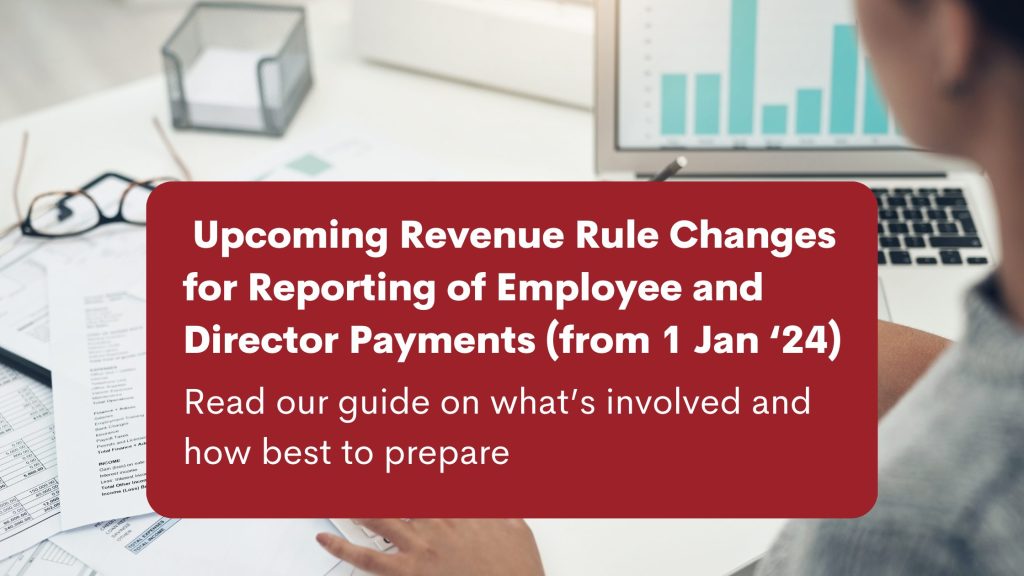As we look ahead to 2024, significant changes are on the horizon for payroll, particularly when it comes to the reporting of Employee and Director payments. From 1 January 2024, Irish employers will be obliged to electronically report payments made to Employees and Directors either ahead of payment, or on the payment date itself.
As an Accountancy, Taxation and Payroll specialist, Ormsby & Rhodes is committed to helping our clients stay ahead of these changes. In this short read, we delve into the key requirements of the new rules, focusing on the three vital payment categories in what is described by Revenue as Phase 1
Electronic Reporting via ROS
One of the most prominent changes is the mandatory electronic reporting of specific payment types. Revenue has engaged a third-party technology provider to support this process and payments will need to be reported electronically via ROS.
The following payments are in scope for phase I:
Work from Home Allowances
In the wake of the COVID-19 pandemic, remote work has become the norm for many organisations. To support employees in this transition, many companies introduced the Revenue Work from Home Allowance to cover expenses incurred while working remotely. Starting from 1 January 2024, employers will need to electronically report these allowances via ROS. If paying the Remote Working Daily Allowance, you must report the total number of days, amount paid, and date paid.
Small Exemption Scheme Payments (Vouchers)
The Small Exemption Scheme, often paid in the form of vouchers, are amounts paid to employees and directors as a part of their remuneration packages. Since 2023, the total allowable amount was increased to €1,000 per annum across two or more vouchers, increasing the scheme adoption. Under the new rules, reporting of these payments will shift to an electronic format via ROS.
Travel and Subsistence
Travel and subsistence expenses are a common component of employee compensation, especially for those who frequently travel for work-related purposes. When paying travel and subsistence to Employees and Directors, you must include: travel vouched, travel unvouched, subsistence vouched, subsistence unvouched, site based employees, emergency travel and eating on site.
Preparing for the Changes
To effectively navigate the upcoming changes to Revenue rules, businesses and employers should take proactive steps:
- Ensure your payroll provider is prepared to begin processing your employer payments and that they are aware of the full scope of requirements for your business. Ormsby & Rhodes clients can rest assured that this process will be managed by our team, in collaboration with your responsible leads.
- Review current practices: Conduct a review of current employee and director payments and the potential to introduce changes in the future.
- Ensure that your organisation is equipped with the necessary technology and resources to seamlessly transition to electronic reporting via ROS.
- Consider outsourcing payroll with an appropriate lead time, ahead of the changes being implemented.
- Seek Professional Guidance: Consider consulting with tax and accounting experts, such as our team at Ormsby & Rhodes, to navigate the intricacies of the new rules and ensure compliance.
In conclusion, the forthcoming changes to Revenue rules, set to be implemented from 1 January 2024, represent a significant shift towards electronic reporting and enhanced transparency in the reporting of employee and director payments. As your trusted Accounting, Taxation and Payroll partner, we are here to support you through this transition and ensure that your reporting processes remain in compliance with the evolving regulations.
To discuss outsourcing your Payroll to our dedicated specialists at Ormsby & Rhodes, send us an email at info@ormsby-rhodes.ie





